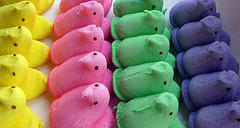Counting calories is important for losing weight or maintaining your current weight, but you also need to understand how calories work. Calories are not the same thing as empty calories, and these informative facts from the USDA will show you why.
What are empty calories?
Empty calories are calories that come from solid fats and added sugars. These calories add virtually no nutrients to your food, making them unnecessary and harmful if they're consumed in excess.
What are some foods that contain empty calories?
Foods with empty calories include desserts like cake, cookies, pastries, and donuts, sugary beverages like sodas or fruit drinks, many types of cheeses, and meats like sausage, hot dogs, bacon and ribs. Today, there are healthier versions of many of these foods that contain fewer or no empty calories.
How many empty calories can I have?
The number varies from person to person, and it depends on things like gender, age, weight and level of physical activity. As a general rule, adult women can have anywhere from 120 to 260 empty calories per day, while adult men can have 260 to 330 per day. That number is lower for small children.

 Equal Housing Opportunity
Equal Housing Opportunity